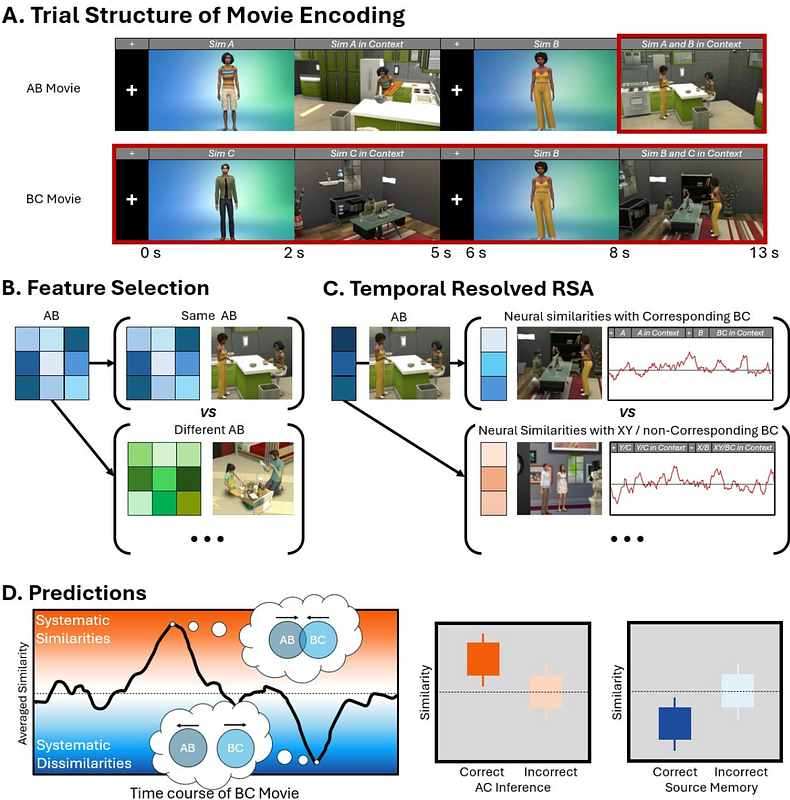Episodic events are flexibility encoded in both integrated and separated neural representations

Episodic events are flexibility encoded in both integrated and separated neural representations
Liu, Z.; Johansson, M.; Bramao, I.
AbstractThis study investigates how the brain encodes episodic events to support diverse memory functions. Thirty-six participants viewed movies simulating real-life interactions while EEG was recorded. They first watched movies featuring two characters (AB), followed by scenes where one original character interacted with a new one (BC). Memory was assessed for direct (AB and BC), indirect (AC) associations, and source memory about whether two characters had appeared together. Source memory was more accurate when participants correctly inferred indirect associations. Time-resolved representational similarity analysis (RSA) of EEG data revealed both neural pattern similarities and dissimilarities during AB and BC encoding. Pattern similarities, indicating memory integration across episodes, predicted successful indirect associations. Conversely, dissimilarities predicted accurate source memory, indicating the preservation of distinct memory traces. These findings suggest that episodic events are flexibly encoded through both integrated and segregated neural representations, enabling the brain to support multiple memory functions depending on task demands.